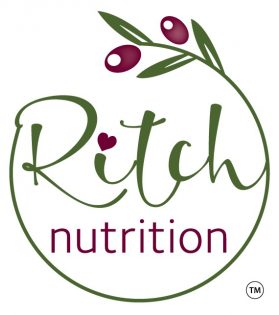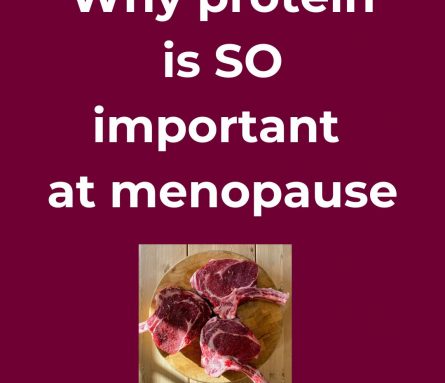As we go through the menopause transition, the profound hormonal shifts our bodies undergo can often bring with them multiple symptoms such as brain fog, mood swings, weight gain, fatigue, hot flushes, anxiety and disrupted sleep. Many women turn to HRT to help resolve their symptoms, which can be life-changing for many, however it is also vital to look at nutrition and lifestyle changes alongside to ensure you're not just surviving, but thriving into mid-life and beyond.
One of the factors I often see is that most women are just not eating sufficient protein. Although widely talked about in fitness circles, as oestrogen levels drop increasing dietary protein can be a game-changer.
Here's a few reasons why:
💪 1. Protein Preserves Muscle Mass (and Your Metabolism)
From around the age of 35, we naturally begin to lose muscle mass, about 3–8% per decade, and this accelerates after menopause. This really does matter because muscle tissue is metabolically active and burns more calories at rest. Loss of muscle mass can lead to fatigue, weight gain, and frailty later in life.
Maintaining muscle mass supports joint stability, posture and everyday strength, whether carrying shopping or lifting kids/grandkids.
Protein provides your muscles with the building blocks (amino acids) they need to repair, recover, and grow.
📝 Pro tip: Eat protein at every meal, aiming for 25–30g, we can't store protein so best to space it out throughout the day.
🧠 2. Protein Supports Hormone Balance, Mood & Energy
Protein-rich meals help stabilise blood sugar, which can help improve mood swings, energy crashes, sugar cravings, hot flushes, brain fog and help you lose weight consistently and safely.
When blood sugar spikes and crashes, it can mimic or worsen the rollercoaster of menopause symptoms. A balanced meal that includes protein slows the absorption of carbs and helps keep your energy stable throughout the day.
Some amino acids found in protein also support neurotransmitter production such as serotonin and dopamine, key players in mood regulation.
🦴 3. Protein = Stronger Bones Post Menopause
Did you know that up to 20% of bone loss can occur in the five to seven years after menopause? Whilst calcium and vitamin D are often discussed in relation to preventing osteoporosis, protein is also essential for the formation of bone matrix, repair and rebuilding bone tissue and enhancing calcium absorption and retention
Pairing protein-rich foods with bone-friendly nutrients (like magnesium, vitamin K2, and resistance training) can help protect your bone health well into later life.
🍽 4. Am I Eating Enough Protein?
Most women under-eat protein, especially at breakfast. That single piece of toast or small bowl of cereal likely doesn’t cut it. So what does a protein-rich meal look like?
✅ Greek yogurt (150g) + chia seeds + berries = ~20g
✅ 2 eggs + 1 slice wholegrain toast + spinach = ~22g
✅ 1 cup cooked lentils + quinoa + veg = ~25g
✅ Grilled salmon fillet (100g) + greens + sweet potato = ~30g
If you're plant-based, you need more careful consideration of protein sources, such as legumes, tofu, tempeh, quinoa, seeds, nuts and may need to consider a protein powder.
🔄 5. How to Build Menopause-Friendly Meals
Use this simple plate formula:
🥦 ½ plate colourful veg
🍠 ¼ plate slow-release carbs (quinoa, lentils, sweet potato)
🥩 ¼ plate protein (tofu, chicken, eggs, tempeh, fish)
🥑 + healthy fats (olive oil, nuts, seeds)
Include protein in snacks too—like boiled eggs, hummus and veg sticks, nuts and seeds, or a protein smoothie.
📣 Ready to Feel Stronger and More Balanced?
If you’re not sure where to start, or want a personalised protein plan that works for your lifestyle and values (whether omnivore, plant-based or somewhere in between), I’d love to support you.
📩 Get in touch to book a free exploratory call or visit www.ritchnutrition.com/method to learn more about my programme The Menopause Method.

